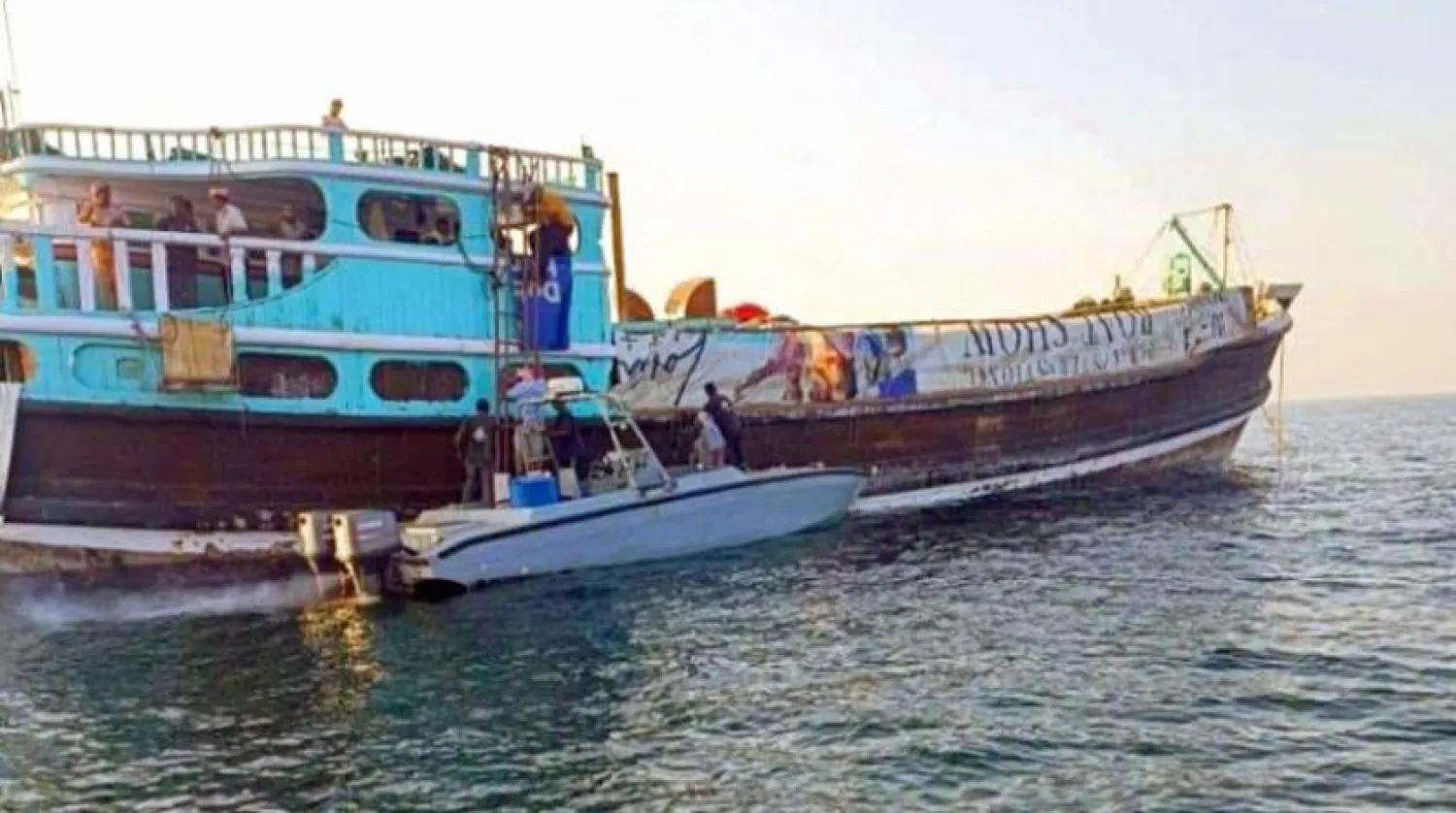Six weeks after the US Navy intercepted an Iranian drug smuggling ship off the coast of Oman, the Yemeni Navy seized another Iranian vessel loaded with narcotics off the coast of Socotra Island.
The shipment is believed to have been bound for Houthi militias in Yemen.
Similar arrests this year and in previous years suggest that Iranian-Houthi investment in drugs is only growing, especially that the ship seized by the Yemeni forces was transporting a significant quantity of illicit drugs.
In September, the US Central Command seized an Iranian ship carrying drugs worth around $20 million during a patrol in the Gulf of Oman.
According to security sources quoted by the official “Saba” news agency, security services in Yemen’s eastern Al-Mahra Governorate conducted investigations with three Yemeni sailors who were rescued by the US Navy after their boat was burnt at sea in late October.
The probes led to the discovery of the Iranian vessel loaded with narcotics, which was later seized and confiscated in Socotra Governorate.
A judicial source in the Houthi-run capital, Sanaa, revealed that the number of drug-related cases have declined in areas run by militias despite an increase in the illicit trade over the past few years.
The source, who requested anonymity, suggested that the decrease in prosecution is related to Houthis themselves facilitating drug smuggling and trade. The Iran-backed group is likely benefiting from narcotics being run in Yemen.
Many dealers and users are released before being referred to prosecution, a fact which suggests Houthis are concluding suspicious deals with drug lords, the source told Asharq Al-Awsat.
New types of narcotics are spread in Houthi-controlled areas and are now sold in the markets openly.
Yemenis accuse Houthis of selling and promoting drugs to benefit from their financial revenues on the one hand, and to corrupt the generations of society on the other hand.









